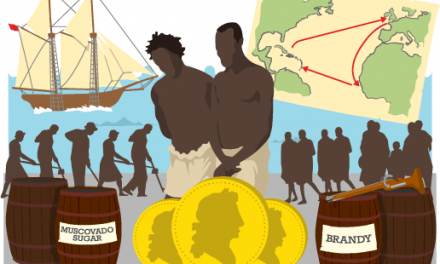The reflection in our gospel reading today from John 15 suggests the Father’s love for Jesus as the measure of Christ’s love for us, a love bearing fruit, “As the Father has loved me, so I have loved you; abide in my love.” Loving like God is a magnificent and fruitful love. The question is how did the Father love Jesus? God loved Jesus by pushing him out of his comfort zone, ‘out of the comfortable confines of heaven down onto earth where, as a baby, Herod tried to kill him.’ God loved Jesus by sending him into ‘the wilderness for 40 days under assault by the devil trying to get his claws into him.’ God loved Jesus by encircling him with betrayal friends like Peter and Judas and doubting Thomases. God loved Jesus ‘with peril at every turn, demons to be cast out, the sick pulling on him, crowds pressing, a woman pulling the hem of his garment, no roof over his head, and then the worst conceivable end,’ crucifixion. What type of love is this?
Love bearing fruit is always from a friend and not a flatterer. Jesus provides us the missional notion and concept of true friendship love. God’s friendship with us is not bread and butter. It was Aristotle who said, “The opposite of a friend is a flatterer.” The Father’s love for Jesus as the measure of Christ’s love for us is a love bearing fruit even in the midst of pain and loneliness. Jesus, despite being sent out of his comfort zone into the world, separated physically from the Father, sent to the wilderness of 40 days, allowed and endured his love for the Father’s command to bear abiding redemptive fruit. In his Letter to the Galatians, Paul, a friend of Jesus who also because of his love and obedience Jesus’ commands became a model of love bearing fruit spoke out of his experience of the “fruit of the Spirit” not the fruit of your good intentions.”
Jesus in obedience to his Father’s commandment, manifests the fruit of the Spirit: “love, joy, peace, patience, kindness, goodness, faithfulness, gentleness, self-control. Against such there is no law.” Apostle Paul in obedience to God’s commandment and as a friend of God and not a flatterer, even in imprisonment and in sickness produced the fruit of the Spirit. The only law for the healing of our nations, families and church revival is the law of the fruit of the Spirit. The world is bleeding and divided today just as the churches are declining and divorce rate is increasing because there is no law of love in the world, what we have is law of lust – works of the flesh which are: adultery, fornication, uncleanness, lewdness, idolatry, sorcery, hatred, contentions, jealousies, outburst of wrath, selfish ambitions, dissensions, heresies, envy, murder, drunkenness, revelries, and the like (Gal 4:19-23). Jesus would not flatter God neither would Paul flatter Jesus. Love bearing fruits summons us to be a true friend of Jesus and not a flatterer just as Jesus would not flatter us or inflate our egos. We are in a Facebook and Twitter generation where friendship are offer to those who flatter us whereas friendship should be a declaration of trust just as ‘Jesus simply declares you and I as his friends, like it or not, and irrespective of whether you’ve been a good friend in return or not.’ Jesus provides us a missional notion of friendship as one who do what God commands: “You are my friends if you do what I command you. I do not call you servants any longer, because the servant does not know what the master is doing; but I have called you friends, because I have made known to you everything that I have heard from my Father. You did not choose me but I chose you. And I appointed you to go and bear fruit, fruit that will last, so that the Father will give you whatever you ask him in my name. I am giving you these commands so that you may love one another” (Jn 15:14-17).
Following Jesus’ description of a friend, Aristotle described a friend as ‘somebody who helps you to be wise or to be good,’ Kierkegaard makes the understanding of friendship love simpler: “To love another person is to help that person to love God and to be loved is to be helped in loving God.” To love another person as a friend is to help just as Jesus helps us in knowing and loving God hence, we can sing with Joseph Scriven (1819-86), ‘What a friend we have in Jesus, All our sins and griefs to bear…” The challenge is how many people can sing the same song: “What a friend we have in you and I?”
Love bearing fruit like that of Jesus and Paul helps us to be wise and to be good Christian, helping others, side by side. God need true friends and not just people singing with our lips without our hearts. Enough of Santa Claus friendship relationship with God and others, filling our wish and prayer lists. Using the words of Charles Wesley, Love that is Divine is love that is excelling in friendship that brings joy of heaven to our earthly challenges. Love bearing fruit is full of compassion, it is pure and unbounded and its visitation is redemptive.
Jesus commands us to do what he does. He asks us to, “Go and bear fruit.” Go bear fruit in your wilderness, fiery furnace and lion’s den like Daniel. Where does one go to bear fruit? Love bearing fruit starts in our homes, churches, workplaces and with the world as our parish. Paul not only bore fruits in cities and towns, he bore abiding fruits of the Spirit even in prison. God never abandons fruit bearers in the grave. The fruit of peace, joy kindness, goodness Jesus bore on his Good Friday, produced the power of Resurrection on the Easter Day. The fruit of the Spirit we strive to bear in the days of our trials and hardship will surely raise us up so that our joy may be complete now and in eternal life.











Recent Comments